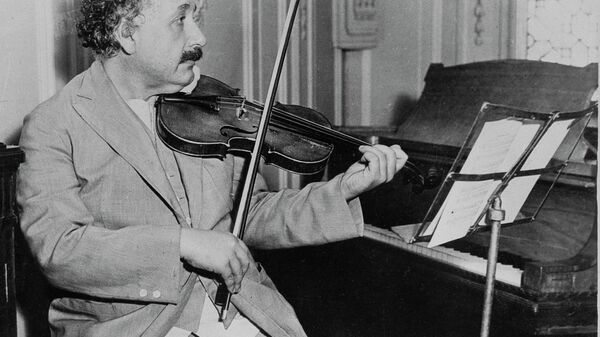MOSCOW, December 6 (Sputnik) Princeton University Press has unveiled its Digital Einstein Papers collection, an open-access site containing thousands of documents by famous theoretical physicist and philosopher of science Albert Einstein, the New York Times reported.
A collaborative project to study over 80,000 documents left behind by Albert Einstein has been underway since 1986, jointly carried out by Princeton and the Hebrew University of Jerusalem; Einstein willed the latter university the rights to his work. The online project has made about 5,000 documents available. Published earlier in book form, the papers presently comprise 13 volumes; a total of 30 volumes are planned. Thousands more documents will become available over time as they are studied and categorized by scholars.
The chronologically-released materials, available in English and German (the main language in which Einstein wrote) bring readers up to speed up to 1923, when Einstein turned 44.
The archives contain letters, papers, postcards, notebooks and diaries that were left behind by the physicist following his death in 1955, complete with academic essays about the political, personal and cultural life of the day, the New York Times explained. The material includes everything from Einstein’s theory of relativity notebook to his high school transcript and letters to friends and loved ones.
Walter Isaacson, who has written a biography on Einstein, noted the tremendous benefit of making Einstein’s work available to millions of people, saying in the Wall Strewet Journal that crowdsourcing allows people to “ferret out gems and connections that professional researchers may have missed.” Isaacson noted that the placing of scientific archives like Einstein’s online “will reinforce a basic truth about the digital age: By empowering everyone to get information unfiltered, it diminishes the role of gatekeepers and intermediaries. Scholars and experts will still play an important role in historical analysis, but their interpretations will be challenged and supplemented by the wisdom of crowds.”
The papers can be found here.



